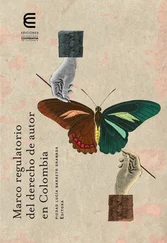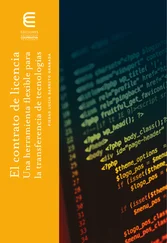Radwa Ashour - Granada
Здесь есть возможность читать онлайн «Radwa Ashour - Granada» весь текст электронной книги совершенно бесплатно (целиком полную версию без сокращений). В некоторых случаях можно слушать аудио, скачать через торрент в формате fb2 и присутствует краткое содержание. Год выпуска: 2003, ISBN: 2003, Издательство: Syracuse University Press, Жанр: Современная проза, Историческая проза, на английском языке. Описание произведения, (предисловие) а так же отзывы посетителей доступны на портале библиотеки ЛибКат.
- Название:Granada
- Автор:
- Издательство:Syracuse University Press
- Жанр:
- Год:2003
- ISBN:9780815607656
- Рейтинг книги:5 / 5. Голосов: 1
-
Избранное:Добавить в избранное
- Отзывы:
-
Ваша оценка:
- 100
- 1
- 2
- 3
- 4
- 5
Granada: краткое содержание, описание и аннотация
Предлагаем к чтению аннотацию, описание, краткое содержание или предисловие (зависит от того, что написал сам автор книги «Granada»). Если вы не нашли необходимую информацию о книге — напишите в комментариях, мы постараемся отыскать её.
Granada — читать онлайн бесплатно полную книгу (весь текст) целиком
Ниже представлен текст книги, разбитый по страницам. Система сохранения места последней прочитанной страницы, позволяет с удобством читать онлайн бесплатно книгу «Granada», без необходимости каждый раз заново искать на чём Вы остановились. Поставьте закладку, и сможете в любой момент перейти на страницу, на которой закончили чтение.
Интервал:
Закладка:
The women of the Tahir family came bearing gifts and greetings of affections and pampering for their future daughters-in-law. It was so profuse that Maryama heard one of her youngest daughters say to the other, both of whom were under ten, “I wish the brothers had two younger ones to ask us to marry them.” Maryama grabbed the broom by the handle and spanked the two little girls, the one who spoke and the other who listened. Just as they were about to let out a loud cry, she lifted the broomstick and whispered to them in a soft but threatening voice to be quiet. “Not a sound! There are guests in the house!”
Quietly and secretly, the family celebrated the engagements and the signing of the marriage contracts. Their closest and trusted friends and neighbors were invited to the wedding feast with abundant food and low-keyed singing that stayed within the neighborhood walls.
Umm Abdel-Kareem, the grooms’ grandmother, was at a loss to understand this strange way of celebrating a wedding. The women did not go to the bathhouse accompanied by the beating of tambourines or festive music. Nor did they cry out, “Allah is great!” when the sheep were slaughtered, or adorn the door of the house with the imprints of their palms soaked in sheep’s blood. Apart from Maryama’s distress and Umm Abdel-Kareem’s annoyance, the house of Hasan glowed with happiness, affection, and the excitement of children until it was time to think about making preparations for the journey to Valencia.
Two days before departure, Umm Abdel-Kareem fell ill. She woke up that morning with a pallid look on her face and wilting eyes, along with shivers and a fever. The poor thing would return to her bed after spilling her guts from vomiting and diarrhea, only to have to make the trip once again.
Umm Hasan whispered to Maryama, “I hope the woman doesn’t die in our house and then have them say that Hasan s daughters brought us bad luck. That’s all we need. Ever since I first laid eyes on that woman and her sour puss, my heart sank. She’s a jinx!”
Saleema gave Umm Abdel-Kareem a thorough examination. She checked her chest, her stomach, eyes, throat, pulse, and the color of her fingernails. She determined that it wasn’t serious. The old woman grew more pale, as though she had just put one foot into the grave. The blood in her arteries coagulated in fear whenever Saleema touched a part of her body. The truth is that when she first saw Saleema she made mental note of her strange appearance, her disheveled hair, and her distracted look. Her suspicions were confirmed only two days later when she passed by her room while the door was open and caught a glimpse of the bottles, jars, baskets, and books and got a whiff of the strange odors. She moved away as quickly as possible and muttered some Quranic verses under her breath to protect her from the evil spirits.
She thought of the expression that says, “Like aunt like niece,” as she reminded herself that her family was being afflicted with not one, but three of them. That’s all she could think about. Did Valencia lack young girls? Surely there were thousands of girls there, more beautiful, and more noble of birth and prestige than these.
There was no choice, so Umm Abdel-Kareem submitted herself to the will of God and awaited His decree. Even her resistance to any medications Saleema gave her could no longer continue since her sons and their wives stood around her and scolded her for her behavior. “Do you think it’s right at this age to act like a child?” She put herself in God’s hands and took the medicine. At first Saleema gave her some boiled pomegranate rinds mixed with ben-seeds. The old woman knew this remedy, and when she took it she stopped vomiting and the diarrhea stopped. But her suspicions didn’t abate. When Saleema came in with a new mixture, she asked, “What’s this?”
“Medicine.”
“I know it’s medicine, but I’m asking what’s it made of?”
Saleema paid no mind to her suspicions and thought the question was asked merely out of interest. She sat down next to her and started to explain.
“This is a mixture that cures stomachaches. It’s extremely effective, and I concocted it myself. I took a small amount of pure iron dust and soaked it in clean vinegar. I strained the liquid several times. I pulverized it and took a little bit and mixed it with some ground clove and a paste of ginger and honey. Then I brewed it with musk and amber, and God willing, you’ll be cured.”
The only thing that Umm Abdel-Kareem’s mind could comprehend was the pure iron dust that stuck in her head. She refused to take it in spite of the insistence of Saleema, Maryama, and even her daughters-in-law. Finally, Abdel-Kareem came in and forced her to take the medicine. She drank it as though she were drinking a cup of poison.
Although she arose from her bed five days later in robust health, and despite the fact that everything turned back to normal just as it was the day they arrived, Umm Abdel-Kareem was convinced that she was cured only because God gave her victory over that woman possessed by demons. He had listened to her prayers day in and day out beseeching Him not to leave her alone in this time of affliction. With Umm Abdel-Kareem’s convalescence over, the Tahir family was able to take the girls and travel to Valencia, along with the prayers and best wishes of the family, and the tears of Maryama.
20
They wondered how Saad would feel if word got to him that Saleema carried the seeds of his loins and bore him a daughter whom they named Aysha. Would he jump for joy at the news, or would it only increase the misery of his imprisonment and reinforce the walls of confinement around him? When he had told the family that he intended to return by summer’s end or at the beginning of autumn at the latest, it had seemed both possible and probable to him. But time does not disclose its secrets to humankind, and the possible turned impossible.
Saad was assigned to receive a shipment of gunpowder from a deserted spot by the coast. He received it under the protection of night, loaded it onto his mule, and took it through whatever deserted roads he could find, passing through whatever villages he had to. Whenever he came into a village, he claimed he was carrying a shipment of wheat to the inhabitants of his village, and that he was merely a cart driver whose task was to deliver goods. Then he entered the ill-fated village where he encountered what he was doomed to encounter. Some of the villagers told him, “We will buy some wheat.” He answered, “It’s not mine to sell. I don’t own the shipment. I’m only transporting it from the vendors to the buyers who already paid for it.” Saad felt uneasy about the suspicious look some of them gave him, and he proceeded to leave the village as quickly as possible. His anxiety increased when he realized that provisions in the village were meager, and that they were in dire need of flour. He had to repeat over and over again to the many who asked him to buy wheat that the shipment didn’t belong to him and refused their request. He was exerting all his effort to spur on the mule to move faster when he was accosted by a number of men who knocked him to the ground with the intention of taking what they thought was wheat. Saad stood up in protest and tried to keep them away, but their hands had already ripped open the sacks. When he heard someone shout, “It’s not wheat, it’s gunpowder,” Saad dashed off like the wind.
He was running through open roads conscious of how exposed they were, and that only increased his anxiety of how vulnerable he was. He anticipated at any moment that the ground would fall from beneath him and that a pack of barking and panting Castilian dogs would be running on his heels as he sped forward in fright, picking up speed in search of safety. But when he arrived at a spot under some trees in a densely wooded area, he decided to continue running like a madman until he could run no more. He collapsed to the ground, out of breath, but with his ears wide open. The beating of his heart, his panting, and his gasps for air jumbled the silence he was hoping for. After sitting for a while, he grew somewhat calmer, and he began to think about the shipment of gunpowder that was lost, along with the money that was paid for it, and the hopes that were attached to it. He started to bang his head against the tree he was sitting under, asking himself over and over again, “What am I going to do?” The only responses to his question were the throbbing sensations of defeat and disappointment. He sat motionless for some time, unaware of how long, but after a while he grew certain that his only recourse was to look for a way back to his companions.
Читать дальшеИнтервал:
Закладка:
Похожие книги на «Granada»
Представляем Вашему вниманию похожие книги на «Granada» списком для выбора. Мы отобрали схожую по названию и смыслу литературу в надежде предоставить читателям больше вариантов отыскать новые, интересные, ещё непрочитанные произведения.
Обсуждение, отзывы о книге «Granada» и просто собственные мнения читателей. Оставьте ваши комментарии, напишите, что Вы думаете о произведении, его смысле или главных героях. Укажите что конкретно понравилось, а что нет, и почему Вы так считаете.












